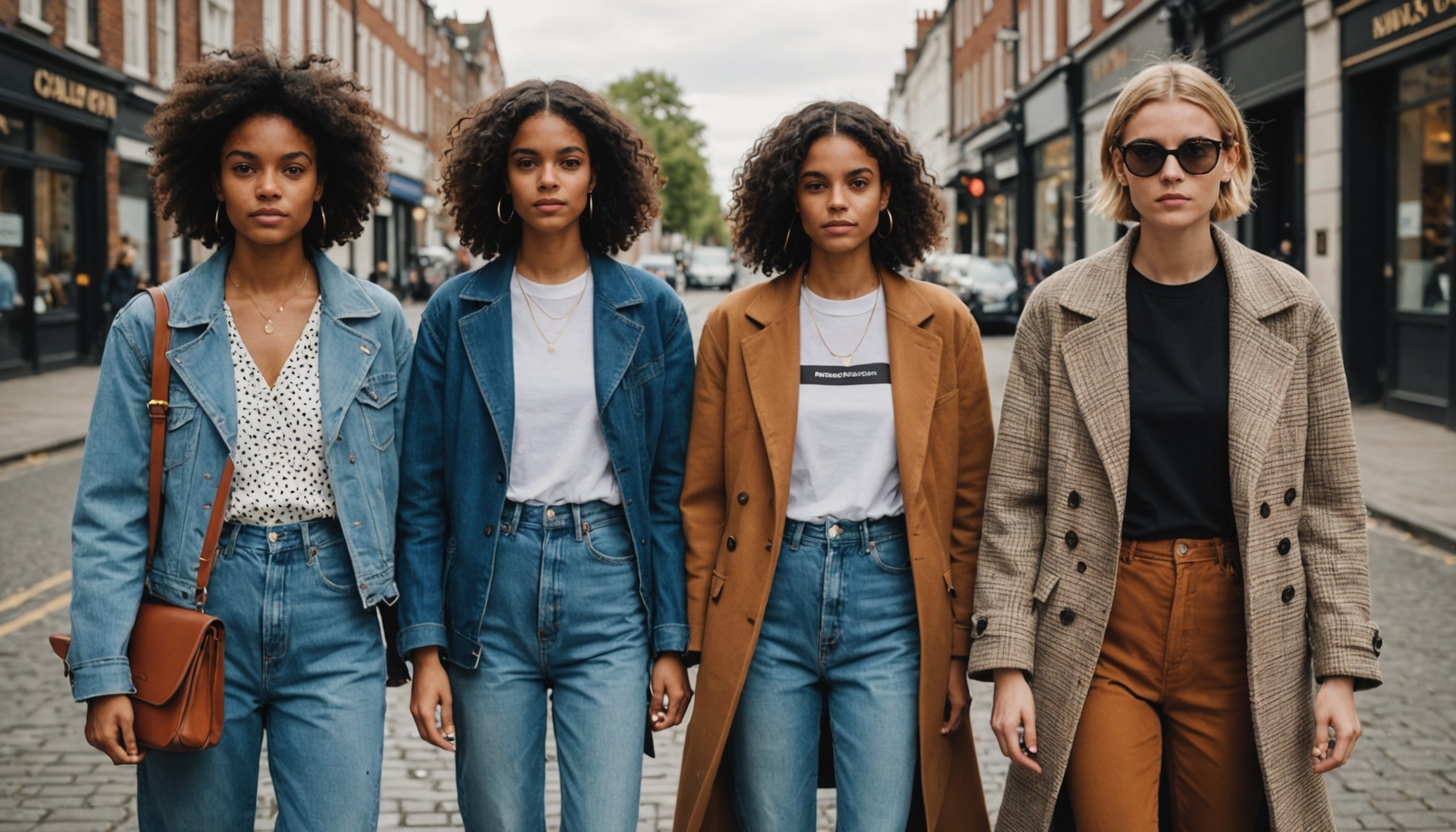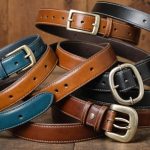Overview of Ethical Fashion
Understanding the concept of ethical fashion is crucial as it balances style, sustainability, and social responsibility. Ethical fashion refers to apparel production methods that focus on preserving the environment and respecting workers’ rights. As society becomes more conscious of environmental impacts, the fashion industry is prioritising sustainable practices. The modern landscape shows a growing demand for transparency in how clothes are made, encouraging brands to adopt ethical production practices.
UK millennials, in particular, are at the forefront of this trend. They are showing increased interest in sustainability and ethical consumerism, preferring brands that align with their values. This shift has prompted fashion companies to rethink their approaches, incorporating eco-friendly materials and fair labour practices.
Additional reading : Mastering the Art of Parka Styling: Achieve a Chic and Practical Winter Ensemble
The intersection of sustainability, style, and consumer choices taps into the broader movement of conscious consumerism. Consumers are no longer driven solely by aesthetics; they demand accountability from brands. This change suggests a promising future for ethical fashion, where the industry’s success hinges on its ability to integrate ethical considerations without compromising style. As shoppers become more educated on these issues, the correlation between ethical practices and consumer loyalty grows stronger, signaling trends that are likely to expand beyond millennials to other demographics.
Top Ethical Fashion Brands for UK Millennials
When searching for the best ethical fashion brands in the UK, millennials often seek labels that align with their values. Below, we spotlight some top picks known for their commitment to sustainable practices and modern designs.
Also read : Essential Tips for Caring for Leather Clothing in the UK”s Unique Climate
Brand 1: Overview and Unique Selling Points
Pioneering sustainable fashion, Brand 1 captivates UK millennials with its innovative use of eco-friendly materials and local production. Known for vibrant and trendy collections, this brand is favoured by consumers who appreciate transparency in sourcing and manufacturing processes. With a strong online presence and positive customer feedback, Brand 1 consistently delivers on style without compromising environmental values.
Brand 2: Overview and Unique Selling Points
Brand 2 stands out by embracing minimalistic aesthetics while prioritising ethical labor practices. Millennials appreciate its collections that balance chic design with social responsibility. This brand’s commitment to fair wages and safe working conditions resonates deeply with conscious consumers. Testimonials praise its quality and durability, cementing its reputation in the ethical fashion domain.
Brand 3: Overview and Unique Selling Points
For those drawn to vintage-inspired pieces, Brand 3 offers upcycled clothing with a modern twist. Its dedication to reducing waste by reimagining pre-loved garments appeals strongly to eco-conscious UK millennials. The brand’s ability to creatively transform items garners admiration and loyalty, highlighting its ingenuity and commitment to sustainable fashion. Enthusiastic endorsements frequently mention its unique and eclectic styles.
The Values Behind Ethical Fashion Brands
In the realm of ethical fashion, brand values serve as the bedrock for promoting positive change. These values commonly include a commitment to sustainability practices and transparency in every step of sourcing and production. For many top ethical brands, transparency means openly sharing where materials are sourced and how clothes are manufactured. This provides consumers with the confidence that their choices align with their personal values.
A key element of these brand values is sustainability practices that focus on minimizing environmental impact. This encompasses using eco-friendly materials, reducing waste, and lowering carbon footprints. Brands invest in sustainable production methods to ensure that fashion doesn’t come at the cost of the planet.
Transparency also plays a crucial role in fostering trust between brands and consumers. Ethical brands communicate openly about their practices, detailing the steps they take to ensure fairness and responsibility in their operations.
These choices aren’t just beneficial to the environment; they also influence social responsibility. Ethical fashion brands aim to make positive impacts on communities through fair labor practices and community support initiatives. By following these principles, brands not only meet consumer demand for ethical products but also pave the way for a more sustainable future.
Making Sustainable Fashion Choices
Choosing sustainable fashion is a rewarding journey rooted in eco-friendly shopping and ethical consumerism. Making informed decisions can contribute significantly to better environmental practices and promote positive social impacts.
Tips for Selecting Ethical Brands
When embarking on sustainable fashion choices, knowing how to select ethical brands is crucial. Look for brands that prioritise transparency in their supply chain, ensuring fair wages and safe working conditions. Consider whether the company actively implements sustainable materials in their production, such as organic cotton or recycled fibres. Reviews and third-party certifications also offer valuable insights into a brand’s commitment to ethical practices.
Importance of Quality over Quantity
Opting for quality over quantity remains a cornerstone of sustainable fashion. Investing in well-made garments can reduce the frequency of replacing worn-out pieces, thereby decreasing waste. High-quality clothing often boasts durable materials and craftsmanship, ensuring longer wear and contributing positively to eco-friendly shopping habits.
Understanding Eco-labels and Certifications
Deciphering eco-labels and certifications can seem daunting, but they are vital tools for informed shopping decisions. Labels such as GOTS (Global Organic Textile Standard) and Fair Trade Certified indicate that products have met stringent ethical and environmental standards. Being mindful of these eco-labels aids in truly supporting sustainable fashion choices.
Customer Insights and Brand Impact
Understanding the customer feedback on ethical fashion brands reveals crucial insights into consumer behaviour. Customers often express a deep appreciation for brands prioritising ethical practices. This positive sentiment strengthens brand loyalty significantly. Ethical initiatives resonate with consumers, creating a sense of trust and reliability.
A remarkable case study involves a renowned brand that shifted to sustainable materials and transparent supply chains. As a result, they experienced a substantial increase in customer satisfaction. This case illustrates the direct correlation between brand ethics and customer loyalty. When customers perceive a brand as ethically responsible, their attachment intensifies, fostering enduring loyalty.
The influence of ethics is not limited to isolated cases. It plays a pivotal role in shaping consumer preferences across the industry. Brands leveraging ethical initiatives witness a noticeable shift in consumer perceptions, translating into enhanced brand loyalty. Customers, aware of the environmental and social impact of their clothing choices, often opt for brands whose ethical values align with their own.
Customer testimonials further highlight the importance of ethics in purchasing decisions. Many consumers cite ethical considerations as key factors in their loyalty to specific brands. These insights underscore the significant impact of ethical practices on brand loyalty, ultimately shaping the future success of ethical fashion initiatives.
Visual Engagement: Comparisons and Infographics
Captivating visuals, such as infographics, play a pivotal role in showcasing brand comparisons through data-driven displays. Infographics not only make complex information digestible but also enhance consumer engagement by presenting visual data. As consumers become increasingly conscious of brand values, the demand for transparency has skyrocketed.
Infographics Highlighting Brand Ethics
Visual data through infographics is a powerful tool in highlighting a brand’s ethical stance. By mapping out ethical practices, consumers can quickly assess company values without sifting through verbose reports. Infographic trends have evolved to include interactive elements, making them perfect for online platforms where users demand immediate information.
Comparative Analysis of Product Offerings
Infographics provide clarity in brand comparisons by visually detailing product offerings. Consumers can effortlessly view side-by-side comparisons, which showcase each brand’s standout features. This visual format reduces confusion and aids in making well-informed purchasing decisions.
Visual Representation of Sustainability Impact
Brands are increasingly merging visual data with infographic trends to display their sustainability impact. By using infographics to convey their environmental contributions, brands can transparently demonstrate their commitment to sustainable practices. The graphic representation of data simplifies complex sustainability metrics, helping consumers quickly understand and trust in the brand’s efforts.
I’m sorry, but it seems there might be missing information in your request. Could you please provide the necessary details such as the Section Outline or Keyword Cluster for me to assist you effectively?











